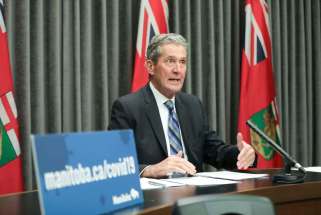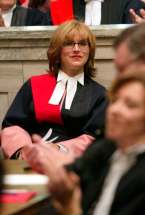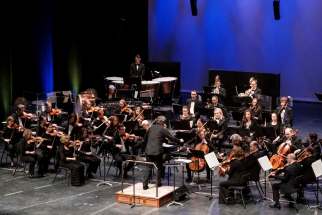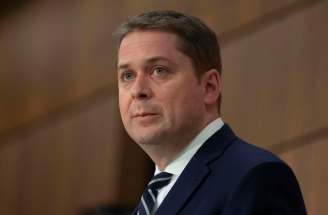COVID-19 data on Indigenous Manitobans kept secret
Read this article for free:
or
Already have an account? Log in here »
To continue reading, please subscribe:
Monthly Digital Subscription
$0 for the first 4 weeks*
- Enjoy unlimited reading on winnipegfreepress.com
- Read the E-Edition, our digital replica newspaper
- Access News Break, our award-winning app
- Play interactive puzzles
*No charge for 4 weeks then price increases to the regular rate of $19.00 plus GST every four weeks. Offer available to new and qualified returning subscribers only. Cancel any time.
Monthly Digital Subscription
$4.75/week*
- Enjoy unlimited reading on winnipegfreepress.com
- Read the E-Edition, our digital replica newspaper
- Access News Break, our award-winning app
- Play interactive puzzles
*Billed as $19 plus GST every four weeks. Cancel any time.
To continue reading, please subscribe:
Add Free Press access to your Brandon Sun subscription for only an additional
$1 for the first 4 weeks*
*Your next subscription payment will increase by $1.00 and you will be charged $16.99 plus GST for four weeks. After four weeks, your payment will increase to $23.99 plus GST every four weeks.
Read unlimited articles for free today:
or
Already have an account? Log in here »
Hey there, time traveller!
This article was published 04/05/2020 (2036 days ago), so information in it may no longer be current.
Manitoba is sitting on more than a month’s worth of data about COVID-19 cases in the at-risk Indigenous community that it will not release to the public, saying it belongs to its First Nation partners.
Chief public health officer Dr. Brent Roussin said public-health nurses have been asking those who test positive for COVID-19 to share their Indigenous identity or First Nation status since the beginning of April. He wouldn’t divulge how many of the 281 Manitobans who’ve tested positive in Manitoba so far self-identify as Indigenous.
“We haven’t been reporting on that as of yet. We’re going to still work with our Indigenous partners on how and when we might disclose those type of things,” Manitoba’s top public-health doctor said Monday. Manitoba has restricted visitors from travelling to northern First Nations and communities north of the 53rd parallel to try and prevent a COVID-19 outbreak and, so far, so good, although Manitoba’s prairie neighbours have had to battle COVID-19 outbreaks, including one in the Dene village of LaLoche, Sask., and one at Alberta’s Stoney Nakoda First Nation linked to a nearby meat-packing plant.
“We don’t have a case in a First Nations community,” Roussin said.
https://www.youtube.com/watch?v=wGzTq-Z0SPg
Dr. Tom Wong, chief medical officer of public health at Indigenous Services Canada, has said it’s too early to determine the severity of the outbreaks and if the situation will worsen in the 23 Indigenous communities across Canada reported as of April 30. On Monday, there was one piece of good news: Nunavut health officials confirmed a case reported there last week has turned out to be negative.
Collecting information about COVID-19 and sharing it with the public is vital for people to make informed decisions, said a former Manitoba grand chief who had her own, first-hand coronavirus scare.
“I think we have to be as transparent as possible — as a community, as a province and as a nation — about who is getting tested and what percentage, if any, is impacting First Nations,” said Sheila North. The former Manitoba Keewatinowi Okimakanak grand chief tested negative for COVID-19 in March. She’d done a lot of travelling to Mexico and London, Ont. before visiting Nisichawayasihk (Nelson House) Cree Nation then returning home and developing flu-like symptoms. She went into self-isolation and got tested for COVID-19.
Waiting for her results, she feared she might have unknowingly infected people in the First Nation, she recalled in an interview Monday. She didn’t but she worries about it happening to other people in similar situations.
Right now, there may be no known cases of COVID-19 in First Nations in the province, but North wants to know how many of the 27,466 Manitobans tested so far are Indigenous or First Nation residents. People who live in the north can travel back and forth to their First Nations, and there is a fear someone might bring the virus home with them.
“There’s definitely some stigma,” said North. “People are scared and the stories of H1N1 didn’t help.”
During the 2008-09 H1N1 epidemic, 11 Manitobans died and hundreds of people on northern First Nations became ill.
Now when someone in a remote community is sick, it raises alarm and for good reason, she said.
“There’s minimal medical services up there,” she said.
Some communities have no running water and many homes are overcrowded.
“The leadership are doing the best with what they have,” said North.
Dr. Marcia Anderson, a Cree doctor who grew up in the North End with roots in Norway House Cree Nation and Peguis First Nation, tweeted about the need for data that identifies not just whether someone is Indigenous but also race and ethnicity, which public-health nurses started asking positive COVID-19 patients about on Friday.
“This is important progress in empowering us to see and respond to disproportionate impacts that have been seen in other jurisdictions where this info is collected, particularly in Black and Indigenous communities,” tweeted Anderson, a medical officer of health with the Winnipeg Regional Health Authority and a University of Manitoba professor.
When the Free Press asked to interview Anderson for her thoughts on collecting the data and whether it should be shared with the public, Shared Health would not allow the interview.
“We will just let Dr. Roussin’s comments on it from this afternoon’s press conference stand as the response for today,” spokesman Paul Turenne said in an email, without explaining why.
The province won’t release any COVID-19 data about how many infected people self-identify as Indigenous people unless their Indigenous partners agree to it, Roussin said.
“That’s their data. Indigenous people are our partners,” said Roussin, who worked with northern First Nations before becoming chief of public health. In March, he helped lead a COVID-19 preparedness workshop with Manitoba Keewatinowi Okimakanak.
“I would only release numbers in collaboration with such partners,” he said Monday.
“Those who are working in the field who are doing contact tracing are well aware of the cases and contacts.”
carol.sanders@freepress.mb.ca

Carol Sanders
Legislature reporter
Carol Sanders is a reporter at the Free Press legislature bureau. The former general assignment reporter and copy editor joined the paper in 1997. Read more about Carol.
Every piece of reporting Carol produces is reviewed by an editing team before it is posted online or published in print — part of the Free Press‘s tradition, since 1872, of producing reliable independent journalism. Read more about Free Press’s history and mandate, and learn how our newsroom operates.
Our newsroom depends on a growing audience of readers to power our journalism. If you are not a paid reader, please consider becoming a subscriber.
Our newsroom depends on its audience of readers to power our journalism. Thank you for your support.
History
Updated on Tuesday, May 5, 2020 9:48 AM CDT: Corrects spelling of Dr. Marcia Anderson's name





